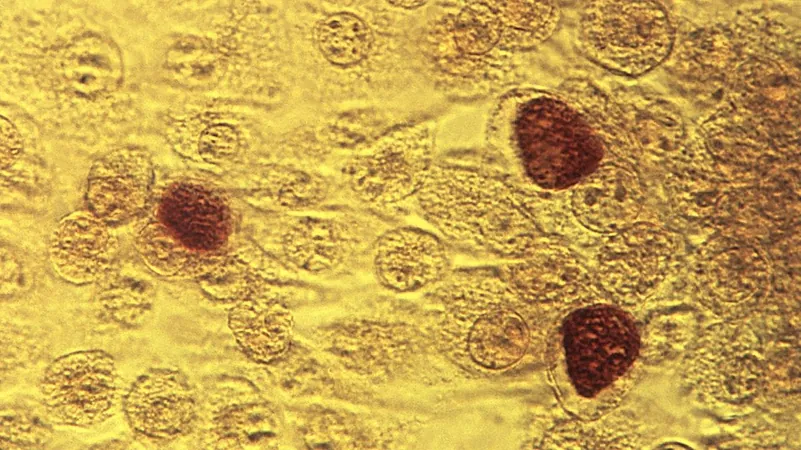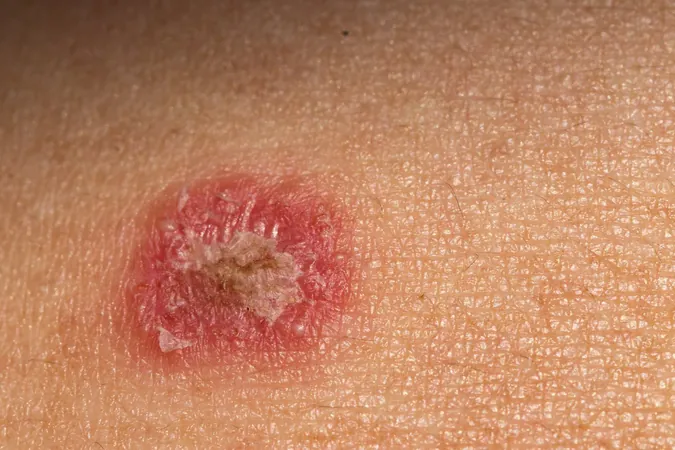
Shocking Link Revealed: Early Menopause Heightens Risk of Autoimmune Diseases in Women!
2024-09-25
Author: Wai
Introduction
Recent research has uncovered a concerning connection between premature ovarian insufficiency (POI) and a significantly elevated risk of severe autoimmune illnesses among women. Defined as the condition where a woman's ovaries stop functioning properly before the age of 40, POI leads to irregular or halted menstrual cycles and symptoms akin to menopause. This alarming condition is estimated to impact about 1% of women globally.
Study Overview
The groundbreaking study, published in the journal Human Reproduction, analyzed health data from nearly 20,000 women tracked over a period of at least 12 years. Researchers from Finland carefully monitored almost 4,000 women diagnosed with POI from 1988 to 2017, comparing them with four similar-aged controls to assess how many developed severe autoimmune disorders during the same timeline.
Key Findings
The results were eye-opening: women with POI were found to be 2.6 times more likely to have an autoimmune disease prior to their diagnosis compared to their peers. Conditions such as type 1 diabetes, overactive thyroid disease, lupus, and inflammatory bowel disease were among those identified. Moreover, the investigation revealed that 5.6% of women with POI were diagnosed with at least one autoimmune disorder before their POI diagnosis, a statistic that jumped to 12.7% after their diagnosis.
Increased Risk
Interestingly, women with no prior autoimmune conditions who were diagnosed with POI were nearly three times more likely to develop an autoimmune disease in the subsequent three years. The types of autoimmune diseases correlated with POI varied significantly, with the risk of developing polyglandular autoimmune diseases soaring nearly 26-fold.
Expert Insights
Despite the stark findings, Dr. Susanna Savukoski, the study's lead researcher from Oulu University Hospital, emphasized that while there’s an increased risk, most women with POI do not go on to develop severe autoimmune conditions. Still, she highlighted the critical need for medical professionals to be aware of this heightened risk and for women to stay informed.
Fertility Considerations
POI poses additional challenges, particularly concerning fertility. Dr. Savukoski recommended that women facing this condition should consider conceiving at a younger age, although she cautioned that some autoimmune diseases could complicate pregnancy.
Future Research
The implications of this study call for further research into the biological mechanisms linking POI and autoimmune diseases. The authors aim to explore whether long-term hormone replacement therapy might mitigate these risks.
Conclusion
Experts in the field, such as Louise Kenny, professor of maternal and fetal health at the University of Liverpool, noted that POI remains poorly understood but dramatically impacts women’s reproductive and overall health. The need for comprehensive, multidisciplinary care for women with POI is clearer than ever, as underscored by Bassel Wattar, an associate professor of reproductive medicine at Anglia Ruskin University.
This compelling study not only sheds light on the interplay between reproductive health and autoimmune conditions but also serves as a call to action for improved awareness, research, and supportive care for women navigating these challenging health issues. Stay tuned for further updates as researchers dive deeper into this critical area of women's health!






 Brasil (PT)
Brasil (PT)
 Canada (EN)
Canada (EN)
 Chile (ES)
Chile (ES)
 España (ES)
España (ES)
 France (FR)
France (FR)
 Hong Kong (EN)
Hong Kong (EN)
 Italia (IT)
Italia (IT)
 日本 (JA)
日本 (JA)
 Magyarország (HU)
Magyarország (HU)
 Norge (NO)
Norge (NO)
 Polska (PL)
Polska (PL)
 Schweiz (DE)
Schweiz (DE)
 Singapore (EN)
Singapore (EN)
 Sverige (SV)
Sverige (SV)
 Suomi (FI)
Suomi (FI)
 Türkiye (TR)
Türkiye (TR)